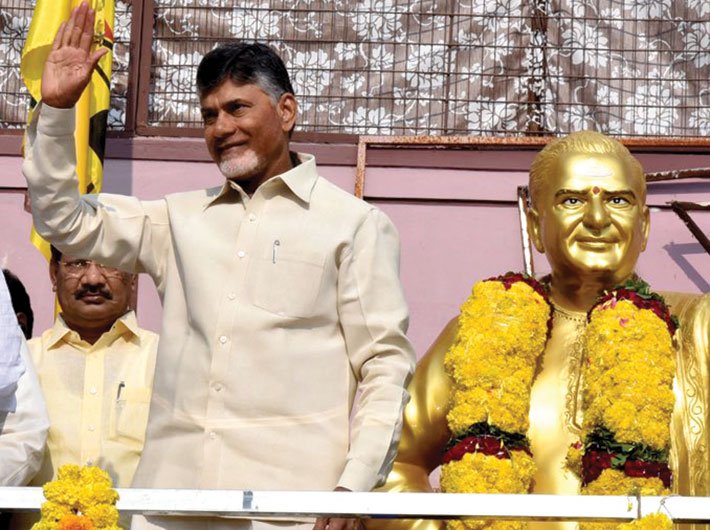It gives certain autonomy and privileges to states like establishing special development boards, reservation in local government jobs, educational institutions
N Chandrababu Naidu-led Telugu Desam Party (TDP) on Friday parted ways from the BJP-led National Democratic Alliance (NDA) at the centre.
The official quitting of the alliance was preceded by the pulling out of two ministers out of the Narendra Modi government, a week ago.
The reason for the decision has been centre’s decision not to grant special category status to Andhra Pradesh as reportedly promised after Telangana was carved out of it in 2014.
What is Special Status
Indian constitution ensures right to equality that extends to individuals, communities, religions, regions and all social and political institutions. The right to equality does not only ensure non-discrimination on basis of the religion, caste, region or any other social and political sub-categories but also ensures absence of any special privileges on its basis.
However, due to certain historical disadvantages to certain regions and states Indian constitution grants Special Status to certain states.
Special category’ status is a classification given by centre to assist in development of those states that face geographical and socio-economic disadvantages like hilly terrains, strategic international borders, economic and infrastructural backwardness and non-viable state finances.
It allows certain autonomy and privileges to states like establishing special development boards, reservation in local government jobs, educational institutions etc.
It also ensured that the states with special status states gets 30 percent of planned expenditure (central budget) and these states are extremely benefited because of normal central assistance (NCA) which is tilted favour of these states.
These states get more funds in terms of NCA and most part of these funds are in the form of grants rather than loans.
Article 371 D provided Special Status to the state of Andhra Pradesh, However, the policy of granting special category status was discontinued following the recommendations of the 14th Finance Commission.
The 14th Finance Commission recommended a record 10% increase in the states' share in the Union taxes to 42%, which was accepted by the Centre. Following which the finance commission suggested that granting special status does not make sense which was accepted by the government.
Following the bifurcation of Andhara Pradesh in 2014 Telangana, former has to suffer major revenue loss due to Hyderabad remaining the capital of Telangana.
This was the major reason for demanding the special status for Andhara Pradesh.
The precursor to the demand is a promise made by the former Prime Minister Manmohan Singh, who in Rajya Sabha (during a debate on the Andhara Pradesh Reorganisation Act) on February 20, 2014, had said that special status will be extended to the successor State of Andhra Pradesh for a period of five years.
Currently 11 states have Special Status, namely, Arunachal Pradesh, Assam, Manipur, Meghalaya, Mizoram, Nagaland, Sikkim, Tripura, Jammu & Kashmir, Himachal Pradesh, and Uttarakhand.
Apart from Andhra Pradesh, Bihar and Odisha has also demanded special status but they have not been granted the same as they did not meet the criteria.
